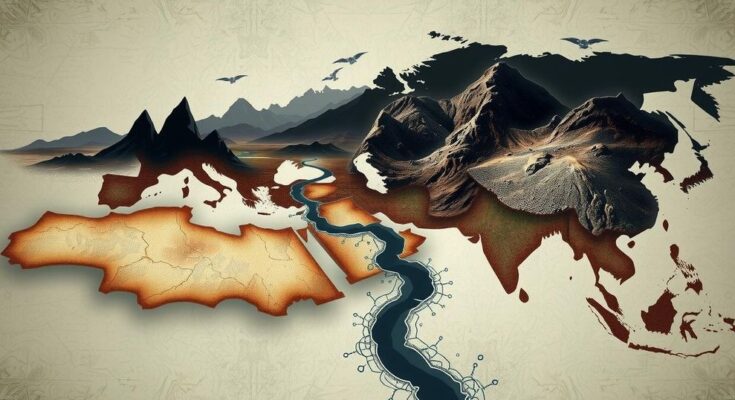The conflict in the DRC, fueled by Rwandan-backed M23 rebels capturing Goma, raises concerns of a regional war. The M23 group claims to defend ethnic Tutsi interests against Hutu militias, while accusations of Rwandan military support add to tensions, jeopardizing diplomatic relations and humanitarian efforts. Goma’s strategic importance heightens fears of human rights violations amidst this volatile situation.
The ongoing conflict in the Democratic Republic of Congo (DRC) poses risks of escalating into a regional war, particularly as Rwanda-supported rebels assert control over the vital city of Goma. The M23 rebel group has initiated substantial territorial advances, resulting in daily casualties and exacerbating the humanitarian situation. With reports of Rwandan troops allegedly fighting alongside the rebels, concerns have emerged about a potential invasion of the DRC by Rwanda.
The M23, named after a peace accord from March 23, 2009, arose from a previous revolt led by ethnic Tutsis. The group accuses the DRC government of failing to honor the peace agreement by adequately incorporating Congolese Tutsis into the military and government. Composed predominantly of ethnic Tutsis, M23 launched its current uprising in 2022, claiming to protect Tutsi interests against Hutu militia groups.
Critics argue that the conflict serves as a pretext for Rwanda to expand its political and economic influence in eastern DRC. Control over the resource-rich area, particularly in Rubaya—the main source of coltan—has allegedly enabled M23 to generate substantial revenue, reportedly $800,000 monthly, from production taxes according to UN assessments.
Rwanda is accused of backing the M23 group, with mounting evidence suggesting its military involvement. UN experts reported the presence of Rwandan troops operating in coordination with M23 rebels, which violates DRC’s sovereignty. As a result, the DRC has suspended diplomatic relations with Rwanda, considering a declaration of war that could lead to a broader East African conflict.
The strategic importance of Goma, housing approximately two million residents, cannot be understated. It serves as a crucial center for trade and humanitarian efforts. M23’s past control of Goma in 2012 raises alarms about the potential humanitarian impact, including heightened risks to civilians amid rising human rights abuses, as emphasized by UN officials.
The conflict in the Democratic Republic of Congo has roots in ethnic tensions and historical grievances, particularly surrounding the treatment of Tutsi communities. The M23 group emerged as a response to perceived inequalities and government failures in the DRC, with accusations of the government excluding Tutsis from significant positions in governance and security. The involvement of Rwanda is deeply tied to the historical context of the 1994 Rwandan Genocide and its aftermath, fostering ongoing tensions and conflict in the region. Understanding the dynamics of this conflict is critical as it not only impacts DRC but also regional stability in Central Africa. Activities in mineral-rich regions heighten the stakes for various nations and groups involved, complicating the humanitarian crises faced by civilians caught in the conflict. The strategic geographic location of Goma further intensifies the conflict’s significance. Efforts by international bodies such as the UN to maintain peace have faced challenges, as accusations of direct military support from Rwanda to M23 complicate diplomatic resolutions. The DRC’s response in severing ties with Rwanda indicates a serious escalation in tensions and the potential for broader conflict in the region.
To summarize, the conflict in the Democratic Republic of Congo is driven by deep-rooted ethnic tensions and territorial disputes, primarily involving the M23 rebel group and its ties to Rwanda. The escalating clashes have jeopardized the humanitarian situation and increased fears of a regional conflict. With the city of Goma at stake, the international community must monitor the situation closely to prevent further deterioration and safeguard the lives of affected civilians.
Original Source: www.star.radio




